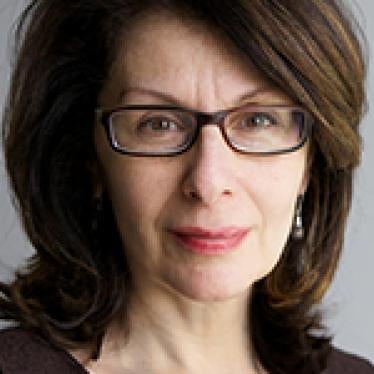The European Union is crafting a "fresh approach" to north Africa in the wake of public uprisings against authoritarianism. That is good news, but it should not stop there. It is time for the EU to make a fresh start with the authoritarian belt of former Soviet countries.
Last week, Štefan Füle, the European commissioner for enlargement and the EU's neighbourhood policy, told the European Parliament that "too many of us fell prey to the assumption that authoritarian regimes were a guarantee of stability in the region" and that the EU should be on the side of people striving to promote European values.
But when it comes to the former Soviet countries, the EU's policy has been to promote change through quiet diplomacy, ‘constructive engagement', and ‘co-operation', contending that confronting repressive governments is counterproductive. The EU has pursued human rights mainly through ‘structured human-rights dialogues' with abusive autocracies.
Dialogue is, of course, essential to diplomacy, but dialogue alone will not bring about human-rights improvements, especially not in countries with long-standing poor records - and whose record is worsening.
The record
The EU is pursuing a partnership and co-operation agreement with Turkmenistan, one of the most repressive and closed countries in the world, believing the agreement essential to secure more of the country's vast gas reserves for European markets. The European Parliament set out criteria that the Turkmen government would have to meet before the EU could sign the agreement - releasing political prisoners and ending repression of civil society, for example. Turkmenistan has met none of the criteria, but instead of pressing the Turkmen government, the European Commission has been campaigning to get the Parliament to back down.
Uzbekistan, too, has persistently defied the EU's calls to improve its atrocious human-rights record, which includes widespread torture, imprisoning human-rights activists, forced child labour in the cotton fields, and persecution of thousands of men perceived to be religious ‘extremists'.
But the Uzbek president, Islam Karimov, was given red-carpet treatment in Brussels a little over a month ago. To his credit, José Manuel Barroso, the Commission's president, raised human-rights issues with him. But without the willingness to impose consequences in the face of Tashkent's failure to improve, there is no hope for any change in Uzbekistan's terrible trajectory on human rights. As one EU diplomat in Tashkent told Human Rights Watch recently, the European policy is to "assist" Uzbekistan, not criticise it.
EU policymakers like to point to Kazakhstan as a regional leader in a rough neighbourhood. Led by Germany and France, the EU warmly supported Kazakhstan's bid to chair the Organisation for Security and Co-operation in Europe (OSCE) in 2010 and host an OSCE summit, though Kazakhstan's brand of soft authoritarianism made it an inappropriate choice for an organisation with a mandate to promote democracy and human rights.
The gamble that the chairmanship would prod reform turned out, sadly yet predictably, to be a poor one. The summit and chairmanship year are over, and Kazakhstan's leading human-rights defender, Yevgeny Zhovtis, is still in prison following a car accident in 2009. An initial police investigation found him not responsible for the crash; that conclusion was later overturned and Zhovtis was sentence to four years in prison.
Azerbaijan is another oil-rich country that contributes to European energy security, and the EU's criticism of its authoritarian leadership has been largely muted. Baku has a history of threatening, harassing and imprisoning journalists, and defied a European Court of Human Rights order to free the editor of two leading independent publications that were forced to close after his imprisonment in 2007 on bogus defamation and terrorism charges. Just last month, the authorities arrested another social-media activist after he posted a call on his Facebook page for a Middle East-style ‘day of rage'.
The EU is negotiating an association agreement with Azerbaijan, so far without imposing any strong human-rights benchmarks. Even more disturbing is the about-face on Azerbaijan in the Council of Europe. It used to take a principled stance on Azerbaijan, but it praised Azerbaijan's "peaceful" parliamentary elections in November 2010. It overlooked the fact that, with the government in firm, albeit indirect, control of the media and with a near-complete ban on freedom of assembly, the vote itself was an afterthought.
Toward a better response
If the EU is sincere at taking a fresh look at its friendships, there are a few immediate steps it can take. It can hold off on the EU-Turkmenistan co-operation agreement until the Turkmen government frees its political prisoners and meets the other criteria set by the European Parliament. It can make clear it will deepen its relationship with Uzbekistan only when it fulfils the key human-rights criteria articulated by the EU's Foreign Affairs Council.
It should redouble efforts at a high level on Kazakhstan's stalled reforms and press for Zhovtis's immediate release. It should open up the association agreement process to Azeri civil-society organisations that can suggest strong human-rights benchmarks for closer ties with the Union.
The EU is looking south right now, where people in north Africa and the Middle East are out on the streets protesting against long-standing repression. While it is at it, the EU needs to make sure it applies its new approach to its neighbours to the east as well.







